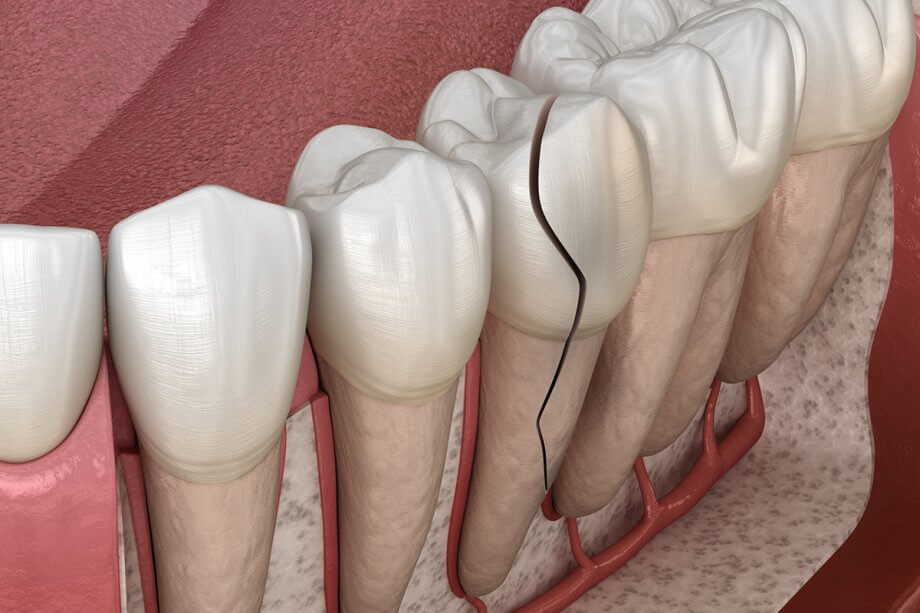Dental crowns provide excellent coverage and protection for damaged or decayed teeth. A natural tooth can occasionally crack or sustain damage beneath a previously installed crown.
We have several strategies to relieve your discomfort and repair your tooth. This blog will share the symptoms of a cracked tooth and explain your restoration options.
How Teeth Become Cracked
One of the primary risk factors for cracked teeth is age. Patients over 50 are more likely to crack a tooth. Young children can also be prone to cracking teeth since they engage in active play. Dental trauma, such as an accident or blow to the face, can also crack teeth.
A tooth may crack under a crown if the patient grinds their teeth, eats hard foods, or chews non-food objects like ice and pens. Teeth may be more prone to cracking if they have large fillings or have undergone root canal therapy.
Symptoms of Cracked Teeth
- Intermittent toothache, especially while chewing
- Sensitivity to sweet foods
- Temperature sensitivity
- Swelling in the gums around the tooth
Cracked teeth may also exhibit no symptoms, and your dentist may detect them via imaging scans.
Repairing A Cracked Tooth Under A Crown
The first step in repairing a cracked tooth is removing the existing crown. Your dentist will examine your tooth to check its condition.
The dentist will then decide whether to perform a root canal or extract the tooth. They will likely recommend extraction if your tooth has a visible crack under the crown. These cracks often go below the gum line, eliminating the chance of saving the natural tooth.
If your crown is in good repair, the dentist may be able to cement it in place. The dentist often must reshape the tooth or create a post to support a new crown.
Frequently Asked Questions About Cracked Teeth
How does a tooth crack under a crown?
Some patients, especially those over 50, experience more tooth wear and weakness as time passes. They may injure the underlying tooth if they habitually put too much pressure on the crown by biting hard objects or grinding their teeth.
What if the crown cracks?
You may need a replacement if the crown but not the underlying tooth cracks. Please see us as soon as possible to have any cracked or broken crowns replaced to protect your tooth. If you don't replace a crown immediately, your natural tooth could develop decay or further problems requiring a root canal or extraction.
Call Smiles on the Upper Westside
If you have a crowned tooth that feels uncomfortable and may have a crack underneath, we can help restore it. Please call our New York City office today at 212-222-5225 to schedule a prompt appointment.

